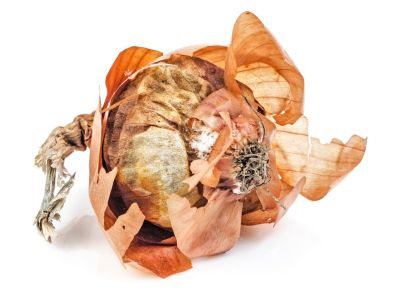Take potatoes for instance; many people say not to add them to the pile. The reason in this case is the spuds’ desire to replicate and become more potatoes, turning into a pile of tubers instead of an organic mixture. Squashing the tubers before adding them to the pile will solve this problem. But what about onions in compost? Can you compost onions? The answer is a resounding, “yes.” Composted onion waste is just as valuable an organic ingredient as most any with a few caveats.
How to Compost Onion Peelings
The issue when composting onions is similar to the potato, in that the onion wants to grow. To avoid new shoots from sprouting from the onions in compost piles, again, chop it up into halves and quarters before tossing it into the compost bin. If you are not trying to compost an entire onion, then the question may be, “how to compost onion peelings?” Onion skins and scraps do not result in the growth of more onions, but they may add an unpleasant aroma to the pile and lure pests or wildlife (or the family dog to digging!). Rotting onions really do smell extremely bad. When composting onions, bury them at least 10 inches (25.5 cm.) deep, or more, and be aware that when you turn your compost pile, the possibility of an unsavory aroma of rotting onion may stop you in your tracks for a moment. In general, the larger the piece of onion added to the compost, the longer it takes to decompose. Of course, this rule applies to all large organic scraps whether vegetable, fruit or branches and sticks. Additionally, if odor is of primary concern, adding crushed oyster shells, newsprint or cardboard can aid in eliminating or, at the very least, controlling noxious smells.
Last Word on Composting Onions
Finally, composting onions does not affect the microbes present in your compost, perhaps just your olfactory senses. Conversely, onions are NOT recommended for addition to vermicomposting bins. Worms are not big fans of odorous food scraps and will turn their metaphorical noses up at onions as well as broccoli, potatoes, and garlic. The high acidity of composted onion waste does not sit well with worm gastric systems apparently.
